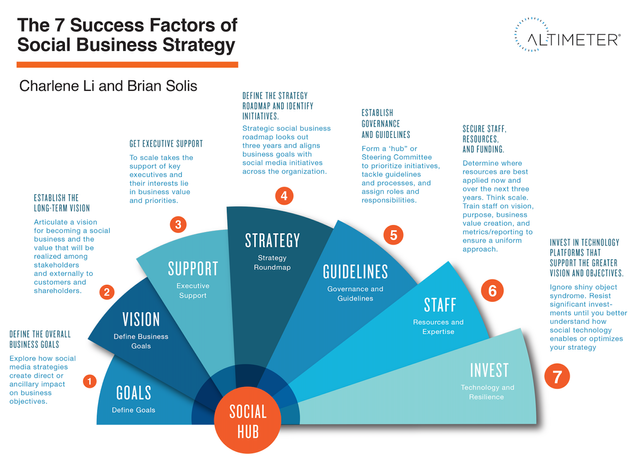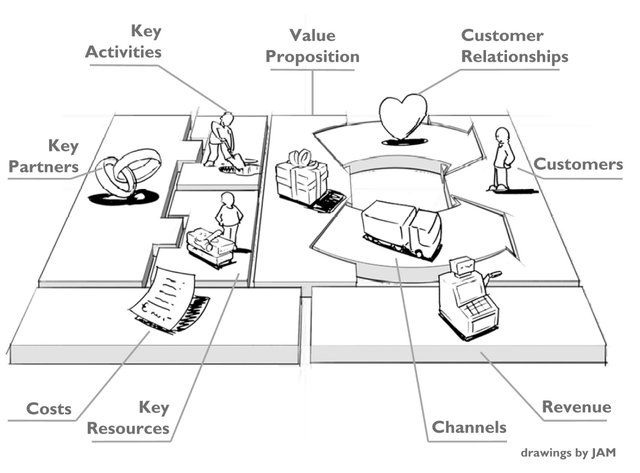Reasons Why Most Businesses Fail & Best Possible Tips To Take Into Consideration In Order To Avoid Failure

Have you experienced business failure before? How did you handle it? Failures are little setbacks that every person and business must experience. Research has shown that 30 percent of new businesses don’t last beyond two years and almost 50 percent only last for up to five years . This means for every two businesses, one has a high chance of failing without ever breaking even. However, an interesting fact also is that, 100 percent of businesses will face challenges that could end in failure.

This means all businesses will fail at one time of their existence or the other, and in one thing or the other. The difference will be in their resilience in the face of failure. Imagine that Thomas Edison had been stopped by failure. The world would still be in darkness. He failed 1000 times in trying to invent the light bulb, but to him, these were just 1000 ways he discovered that could not work. He saw them as steps to his business success.

“Starting a business is like building a ship and embarking on a voyage, armed with a plan, a map and a team. You have to sail with uncertainty against storms and unpredictable weather. If your ship sinks, it’s either you quit or you swim back to shore, build a new ship and sail again.”
~Ajaero Tony Martins
Failure is a topic most of us would rather avoid. But ignoring obvious (and subtle) warning signs of business trouble is a surefire way to end up on the wrong side of business survival statistics. Business is absolutely a complex activity. This is because it involves a lot of technicalities ranging from the task of planning to control of such plans in order to achieve the desire objectives of profit maximization.

Failure happens, sometimes you win and sometimes you learn, but as an entrepreneur or business leader you have responsibilities for your employees and fellow directors, you have to do everything you can to guard against it. As an entrepreneur or a leader, devote yourself to avoiding these crucial mistakes that are the causes of business failure.
“Get mocked at for as much as you can, fail as much as you can but don’t quit. Let every mockery, every failure, be a source of inspiration for you to reach for greatness and that greatness will silence your critics.”
~Ajaero Tony Martins

Failure is uncomfortable and persistent. But the more successful you want to be, the more failure there is to overcome. Way too many of us are treating these struggles like dirty secrets. So let’s stop right now. Instead, let’s pull failure into the light and figure out how we can overcome it to reach our goals.
Here are some reasons why businesses fail:
Inexperienced Management Team:
One of the major reasons that a business might fail is its management. Top management is the backbone of a strong business, decisions and strategies made by the management can decide the fate of a business well before it gets off the ground. Many decision makers (Directors/CEO’s) are often not aware of the business capabilities and the importance of creating long-term strategies and clear achievable goals, there is no point in having strategies or goals if the management teams you have are not experienced at managing a business. Over the year I have seen and known people get promoted to management positions because he/she seems like a nice person and not due to their skill merits without proper management skills or training.

Management of a business encompasses a number of activities: planning, organizing, controlling, directing and communicating. The cardinal rule of small business management is to know exactly where you stand at all times. A common problem faced by successful companies is growing beyond management resources or skills. Short-sightedness to pick the right players on your management team can prove to be a killer for any business. You can have the best opportunities, finance, strategies and goals for a business and still fail without the right team to implement the strategies for a successful turnaround.
Underestimating The Importance Of Cash Flow:
Another major cause of failure in businesses is not understanding the importance of a positive cash flow. Cash is KING no matter what anyone else tells you, No matter how good your balance sheet might look but the reality is when you can’t pay your staff and your creditors on time, you don’t have a business what you have is, what could be or could have been a successful business. It is so important that the person in charge of collecting payments (credit controller or finance director) must be good at their job and should be well paid and rewarded by making sure the company does not run into cash flow problems that are unforeseen.

Cash flow is the key to success for any business that wishes to survive through a rough patch. If the Directors are not aware of how much Cash is needed to operate a business smoothly, it is a disaster waiting to happen. Now once more I want you to think for a moment and work out if you had no cash coming in for 7 days, 14 days or 28 days could your company survive if not, start preparing a plan that will allow you survive in the events of cash-flow problems.
When you are just starting out, suppliers require quick payment for inventory (sometimes even Cash On Delivery). If you sell your products on credit, the time between making the sale and getting paid can be months. This two-way tug at your cash can pull you down if you fail to plan for it.
Business Plan Problems
A solid and realistic business plan is the basis of a successful business. In the plan, you will outline realistic goals for your business, how your business can meet those goals and possible problems and solutions. The plan will figure out if there's a need for the business through research and surveys; it will figure out the costs and inputs needed for the business; and it will outline strategies and time lines that should be implemented and met. Once you have the plan, you must follow it.

If you start doubling your spending or changing your strategies, you are asking for failure. Unless you have found that your business plan is overwhelmingly inaccurate, stick with it. If it is inaccurate, it's best to find out what's wrong with it, fix it and follow a new plan rather than change how you do business based on quick observations. The more mistakes you make, the more expensive your business will become and the greater the chance of failure.
Not Knowing about your Competitors:
Whether you are trying to turnaround an under-performing business or a failing business, knowing what your competitors are up to can save your business. You must understand their products and services, what value-added benefits are they providing their customers, are we doing more or are we lagging behind, what is their customer experience like good or are we better than them?.
The more you know the greater the chances are you will succeed in turning your business around. Remember the more you know about them than what they understand about you, then and only then are you ready to compete by taking away customers from your competitors. Lack of understanding of the competition and your customers is a killer on its own.

It is dangerous to assume that what you have done in the past will always work. Challenge the factors that led to your Success. Do you still do things the same way despite new market demands and changing times? What is your competition doing differently? What new technology is available? Be open to new ideas. Experiment. Those who fail to do this end up becoming pawns to those who do.
Failure To Clearly Define and Understand your Market, your Customers, and your Customers' buying Habits.
Who are your customers? You should be able to clearly identify them in one or two sentences. How are you going to reach them? Is your product or service seasonal? What will you do in the off-season? How loyal are your potential customers to their current supplier? Do customers keep coming back or do they just purchase from you one time? Does it take a long time to close a sale or are your customers more driven by impulse buying?. You see most businesses want to sell and squeeze every bit out of each customer without any consideration for what the customer wants or needs.
Be aware of how customers influence your business. Are you in touch with them? Do you know what they like or dislike about you? Understanding your customer forwards and backwards can play a big role in the development of your strategy. It is very important to take into consideration on the overdependence on a single customer, this might be risky. If your biggest customer walked out the door and never returned, would your organization be ok? If that answer is no, you might consider diversifying your customer base a strategic objective in your strategic plan.
Declining Market:
Everything moves at a fast pace in today’s world, new products, new services, branding and re-branding. You have to keep pace with the times, if your product or service has a dying customer base then the writing is on the wall but most businesses do nothing about it at all including some of the giant corporations until it is too late. If you can see the trend moving away and the writing is clearly on the wall be the first to adopt the changes and challenges and ride the waves of success.
You have to understand your market and your customers, then be prepared to innovate by thinking outside the box. A great book to read is Blue Ocean Strategy By W. Chan Kim & Renee Mauborgne. This book will help you to innovate your business whether you are selling products or a service, it’s a must-read for anyone who wants to innovate and start leading the market rather than being a follower. If you understand your customers well and get regular feedback and can adapt then you will stay ahead of your competition.
Not Seeking a Professional Advice:
Even the best of us choke at some stage in life. None of us has mastered the art of industry in wisdom and information. Thus, a leader or entrepreneur who does not recognise the need to have an expert’s opinion for turning an under-performing or failing business would eventually send a business off in the wrong direction. In order to excel back to the top and get the most out of a business, you should be prepared to accept advice or guidance from people who have turned-around businesses in the past, failure is not a person but an event.
Sometimes a fresh set of eyes is all that is needed to look from the outside in. Did you know that Sir Richard Branson had a mentor? yes, he did it was Sir Freddie Laker . Bill Gates mentor was and still is
Warren Buffet , so don’t be shy about seeking expert advice or seeking out a mentor to help you grow your business.
One of the best pieces of advice I can give to anyone in business is, never to stop learning, read and learn about marketing not just about your industry but how other industries buy and sell products and service and how you can do things differently than the rest of industry in your sector.
How To Handle Business Failure
There should always be a contingency plan, or an emergency plan otherwise called a “Plan B”

This was one of the most inspirational statements of all times from the world’s favorite Billionaire “Bill Gates”. Like Gates, many entrepreneurs who ended up successful today had many times in the past had to deal with business failure ; their surviving principles are worth emulating and would be of deep importance to us if and when carefully considered.

“The business empires built by successful entrepreneurs were erected on the foundation of past failures.”
~Ajaero Tony Martins
Experience has helped to portray a practical understanding of the known fact that anticipation would always assist pro-activity. The more you expect something, the more prepared you are to contain and manage it or contain whatever consequential crisis might come up afterwards

For example you may want to invest into a start-up or start up a new business entirely and it’s very possible for you to completely trust that you’ll succeed with it and that the said business is definitely going to yield Ground-breaking success for you.
“The fastest way to build a successful business from scratch is to fail fast.”
~Ajaero Tony Martins
Having complete reliance on such a mission is really not as healthy as it may appear to be, truth is, it would only leave you less prepared for the worse that may eventually be the outcome. There should always be a contingency plan, or an emergency plan otherwise called a “Plan B” and this can only be created when you have at the very least, a minimal expectation for failure.

Here are some helpful points to help you keep track on your business and to avoid business failure as much as possible:
Acknowledge Business Failure
Your business will not succeed because you refuse to acknowledge you have failed when you fail. It will succeed because you refuse to make failure, final.
When you see failure as just a stepping stone to success and a comma in the sentence of success, you will continue and then finally get to success. This is important because some of the failure experiences come to redirect you to the right path. If you refuse to admit them and make the right changes, you will stay on the wrong path and never meet success.
Analyze the situation
If you fail in a business, don't panic, but first analyze the situation and circumstances surrounding the business failure. Where did you go wrong? What did you do wrong? What caused the failure? What would you have done to prevent the failure that you failed to do?
“Behind every adversity is an opportunity. If you lament over the adversity, you will miss the opportunity.”
~Ajaero Tony Martins

These are the questions you should be answering at this point in time. If you don’t find definite answers to the questions; then you are bound to repeat the feat again. You can also pick the pieces or leftovers of your failed business. They may prove useful in your next business venture.
Develop a Strong Business Plan
A famous quote goes, "If you fail to plan, you plan to fail." While no entrepreneur goes into business planning to fail, many of them start off failing to plan.

A strong business plan is a vital outline for business success. This document details the path by which a company intends to bring in its revenues. The SBA provides resources for small business owners to develop their business plan before they launch their efforts.
Manage Cash Flow
Many startup businesses struggle with cash flow issues. These companies must maintain a balance between getting cash in the door through sales and covering their expenses.

When a company experiences extended periods of negative cash flow, the effects on the business can be really damaging. A fragile startup company must do what it can to bring in revenues while limiting expenses.
Make Accurate Projections
Many entrepreneurs are optimists by nature. They see that their ideas can change the world and adapt a positive outlook toward their endeavors. However, this optimism can also lead them to overestimate their potential revenues and underestimate their future costs.

These unrealistic projections can lead business owners to make poor decisions based on inaccurate data. The owners must take off the rose-colored glasses and make accurate projections for both revenues and costs to keep their business dreams alive.
Develop A Solid Marketing Strategy
The only way to connect with customers is to have an effective marketing strategy. First, know who your customers are and understand their needs. Nailing this will make sure your product or service is right for them. Don’t be rigid in your approach, though.

Flexibility is important in the business world because customers’ needs are constantly moving. You must tune in to what they are looking for so you can sell them what they want to buy.
Therefore, you have to constantly monitor and evaluate your marketing strategy to check for efficiency.
When you have all the data about your target customers’ needs, get in front of them. Advertise, use social media, write blog posts, take part in exhibitions, use public relations resources or other marketing strategies. Stick to the ones that bring in results. Show your customers why your product or services will improve their quality of life, solve their problems or address their burning desires.
Invest in marketing because that is what will bring your ideal customers to you.
Value Your Customers
Your customers are your company’s greatest asset? Without them, your business will not be in existence. From analysis carried out by the marketing experts, it has been reveal that it costs more effort and resources to find new customers than to retain existing ones.
If you must know; existing customers are the most important key to small business survival. Treat them with care and they will spread the word about the wonderful experience you gave them.
Avoid High Debt
Loans, credit cards and other forms of debt can be a double-edged sword for a small business. Although most companies rely on some level of credit to get the capital they need to launch, the downside of credit comes when the time to repay the loans arrives.

When a company spends most of its cash flow on repaying debt, rather than expanding the customer base or adding employees, it lacks the flexibility to keep up with the competition.
Learn From Your Competitors
Don’t be afraid of your competitors. Instead of worrying about them taking away your customers, study their moves.

What can you do better than your competitors? Look at this example of creativity in action. A new car repair company went the extra mile. They used an unusual method to tempt and win customers from their competitors. After repairing their customers’ cars, they cleaned them inside and out. The final touch? They gave each woman driver a beautiful bunch of flowers. Word spread about their unique customer service. Within a few months, their business blew up.
In conclusion, your business is also an immense part of your life. Put your all into making it work. You wouldn’t risk losing your home. So why be casual about your business? At the end of the day, the success or failure of your business depends on you.
Actually, this article is good. But most times when we see most business grumble and fold up after a successful start, you'll believe with me that business is a thing of he mind.
Well everyone has actually got a different perspective in understanding how business operates. Business requires a continuous implementation of creative strategies to keep up with its consistency even after it has had a successful start, one wrong decision or plan could jeopardize the whole success story. So if you say "business is a thing of the mind" then you should ensure that your mind is sharp and capable enough to handle a business in the proper way.
Thanks for your contribution.
Congratulations @davllinc007! You have completed the following achievement on the Steem blockchain and have been rewarded with new badge(s) :
Click here to view your Board
If you no longer want to receive notifications, reply to this comment with the word
STOPTo support your work, I also upvoted your post!
Businesses fail not only because the company director has put bad professionals without enough experience at the head of departments. Businesses fail when the director exceeds his authority or misuses his power and the company's money. The right manager or director will never give raises to please his favorites but think of all employees. I once worked in a company where they put a young, inexperienced girl, the granddaughter of the company's first director, in charge of the accounting department. When she started getting some gratuitous raises, we went to https://ndandp.co.uk/insolvency-claims/misfeasance-claims/ and reported the misuse of the company's budget.
Advertising is very important, but you must remember to choose the right form. The selection of companies is really important. Without it, we will only spend money without any sense. I recommend this post if anyone is looking for such information: https://gamerseo.com/blog/marketing-agency-for-startups-and-how-to-evaluate-them/